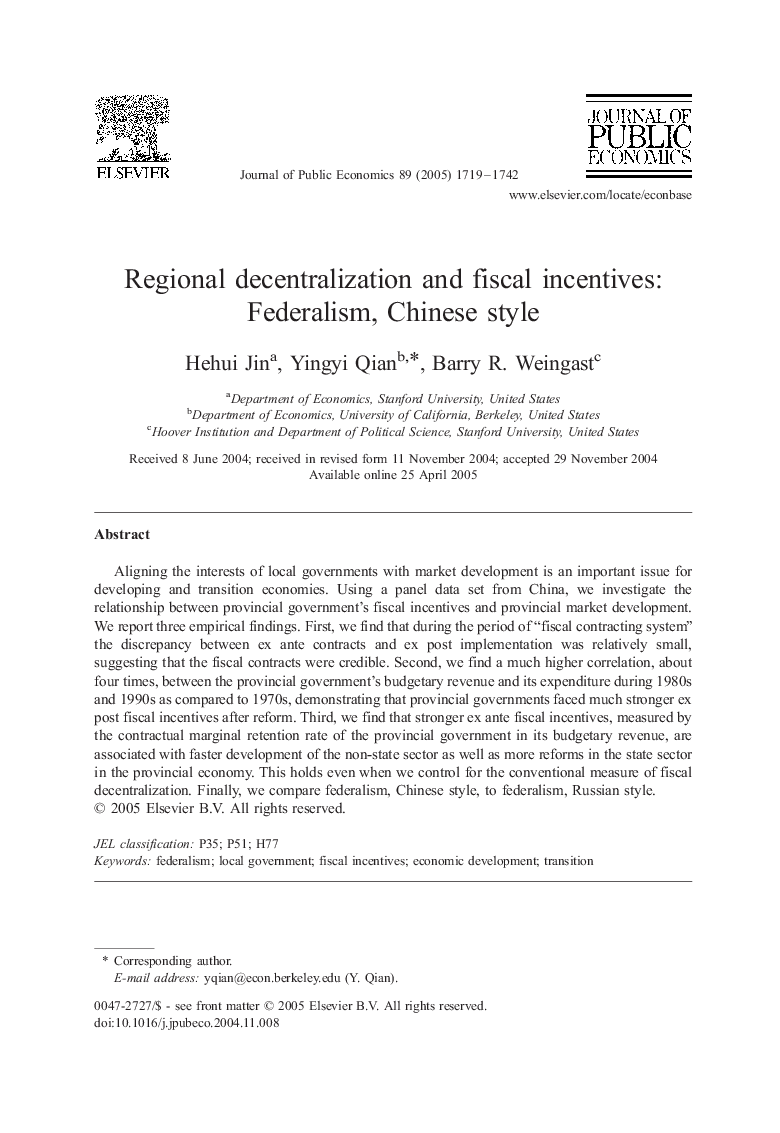| Article ID | Journal | Published Year | Pages | File Type |
|---|---|---|---|---|
| 9726837 | Journal of Public Economics | 2005 | 24 Pages |
Abstract
Aligning the interests of local governments with market development is an important issue for developing and transition economies. Using a panel data set from China, we investigate the relationship between provincial government's fiscal incentives and provincial market development. We report three empirical findings. First, we find that during the period of “fiscal contracting system” the discrepancy between ex ante contracts and ex post implementation was relatively small, suggesting that the fiscal contracts were credible. Second, we find a much higher correlation, about four times, between the provincial government's budgetary revenue and its expenditure during 1980s and 1990s as compared to 1970s, demonstrating that provincial governments faced much stronger ex post fiscal incentives after reform. Third, we find that stronger ex ante fiscal incentives, measured by the contractual marginal retention rate of the provincial government in its budgetary revenue, are associated with faster development of the non-state sector as well as more reforms in the state sector in the provincial economy. This holds even when we control for the conventional measure of fiscal decentralization. Finally, we compare federalism, Chinese style, to federalism, Russian style.
Related Topics
Social Sciences and Humanities
Economics, Econometrics and Finance
Economics and Econometrics
Authors
Hehui Jin, Yingyi Qian, Barry R. Weingast,
